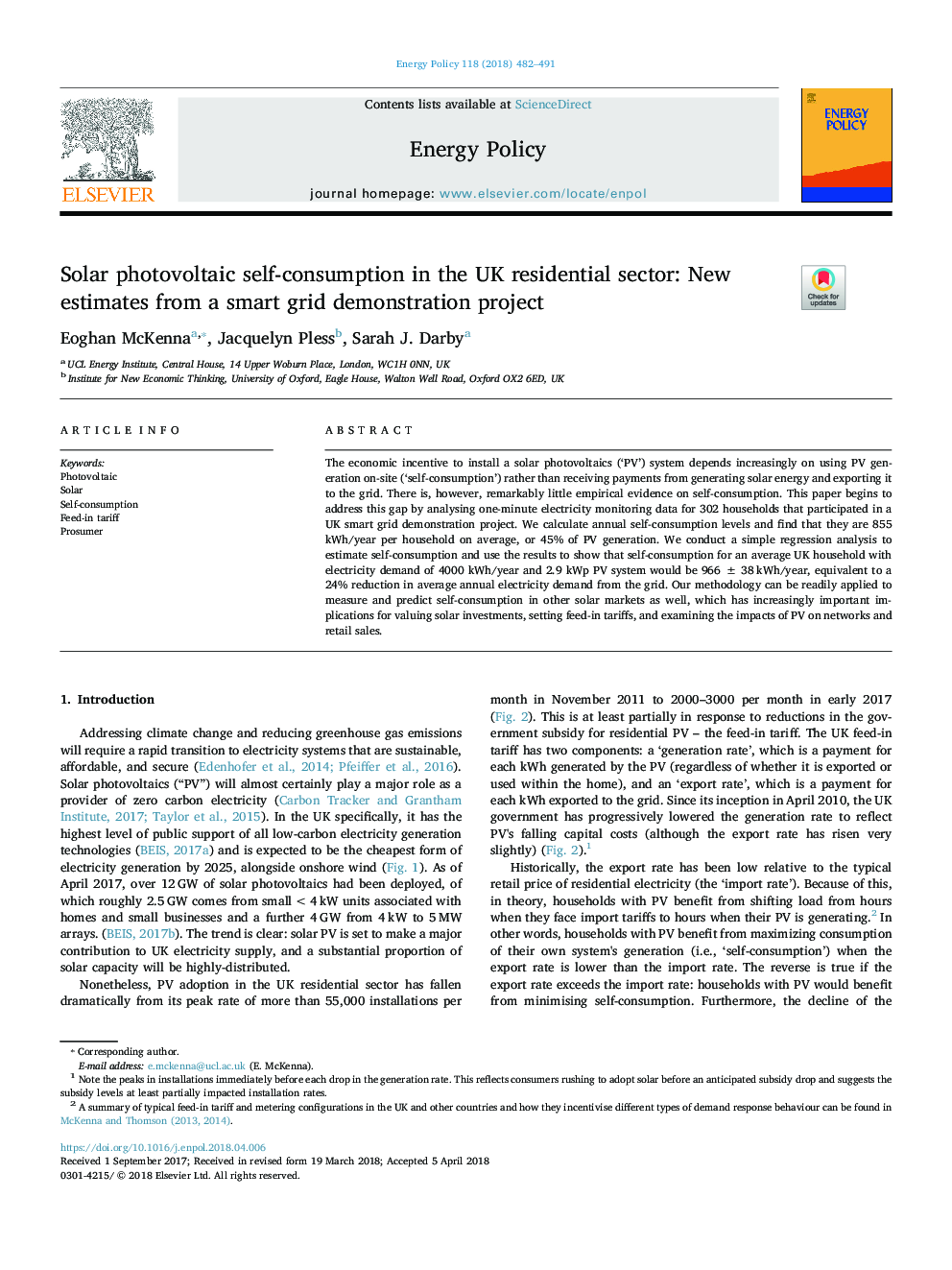| Article ID | Journal | Published Year | Pages | File Type |
|---|---|---|---|---|
| 7397071 | Energy Policy | 2018 | 10 Pages |
Abstract
The economic incentive to install a solar photovoltaics ('PV') system depends increasingly on using PV generation on-site ('self-consumption') rather than receiving payments from generating solar energy and exporting it to the grid. There is, however, remarkably little empirical evidence on self-consumption. This paper begins to address this gap by analysing one-minute electricity monitoring data for 302 households that participated in a UK smart grid demonstration project. We calculate annual self-consumption levels and find that they are 855 kWh/year per household on average, or 45% of PV generation. We conduct a simple regression analysis to estimate self-consumption and use the results to show that self-consumption for an average UK household with electricity demand of 4000 kWh/year and 2.9 kWp PV system would be 966â¯Â±â¯38â¯kWh/year, equivalent to a 24% reduction in average annual electricity demand from the grid. Our methodology can be readily applied to measure and predict self-consumption in other solar markets as well, which has increasingly important implications for valuing solar investments, setting feed-in tariffs, and examining the impacts of PV on networks and retail sales.
Related Topics
Physical Sciences and Engineering
Energy
Energy Engineering and Power Technology
Authors
Eoghan McKenna, Jacquelyn Pless, Sarah J. Darby,
